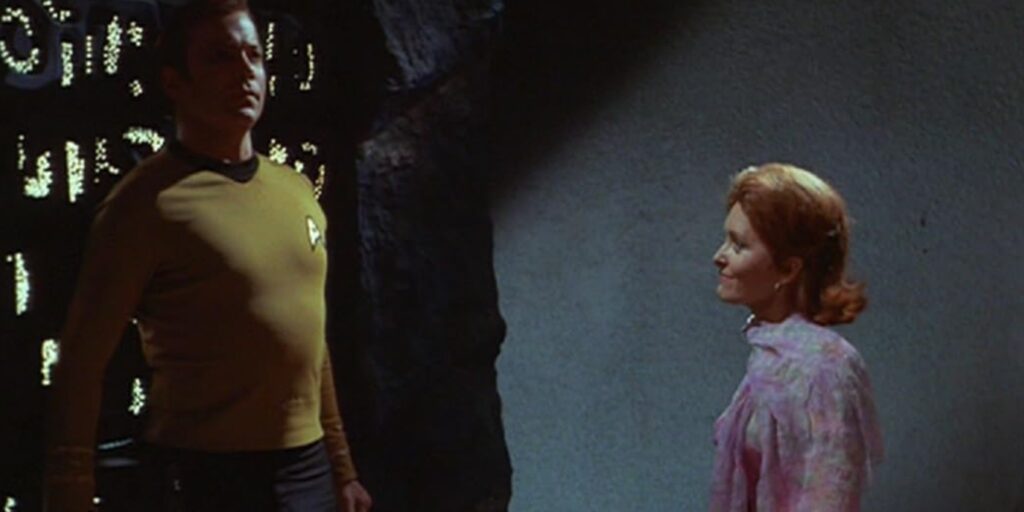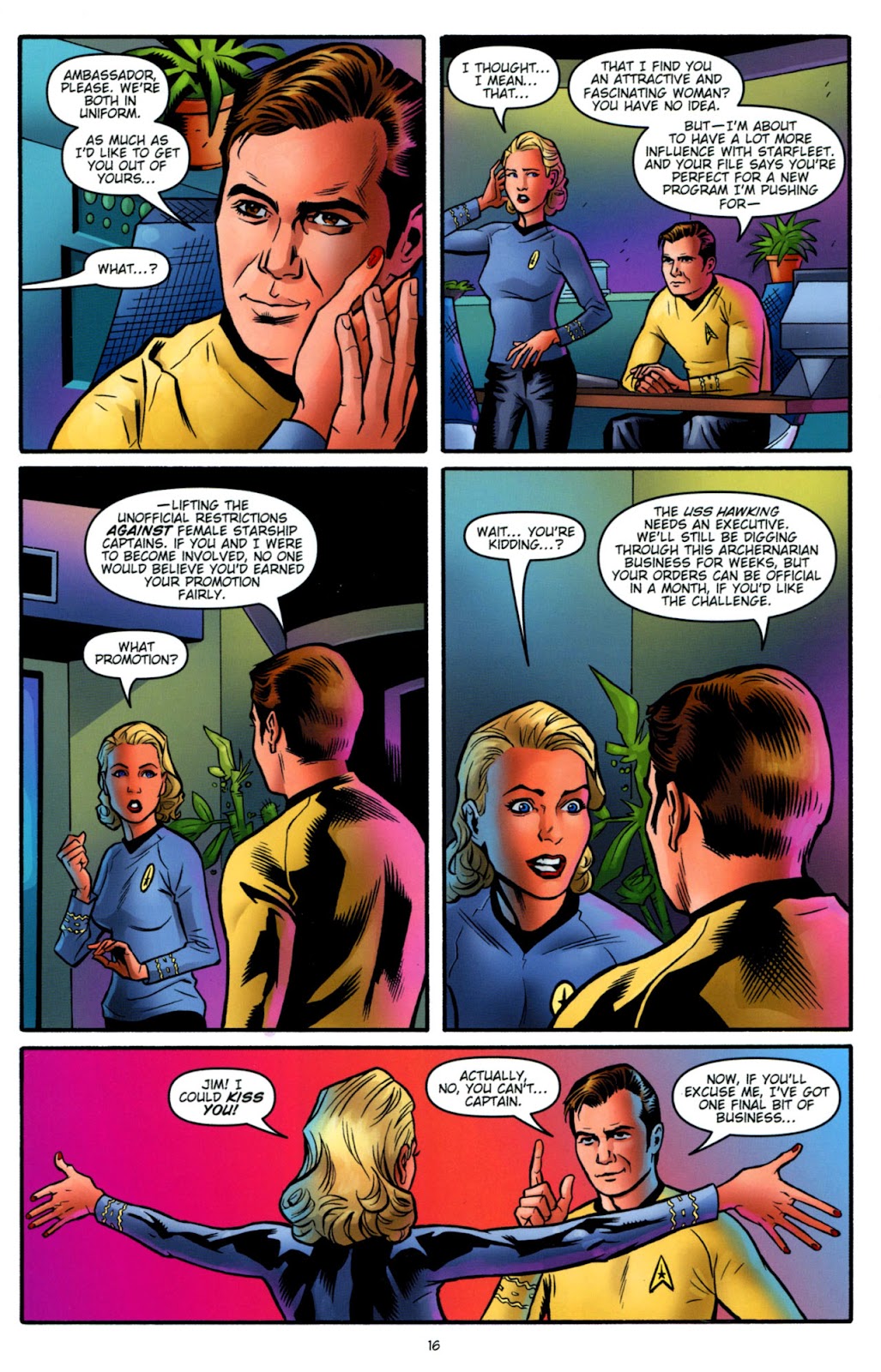
Today, we look at how an odd plot point in the series finale of the original Star Trek series lasted way too long before being retconned.
In Abandoned an’ Forsaked, we examine stories and ideas that were not only abandoned, but also had the stories/plots specifically “overturned” by a later writer (as if they were a legal precedent) with a retcon (retcon stands for “retroactive continuity,” but we’re specifically talking about retcons that contradict earlier stories).
In what turned out to be the series finale of Star Trek, “Turnabout Intruder,” Dr. Janice Lester (Sandra Smith), the former lover of Captain Kirk (William Shatner), swaps bodies with the Captain as part of an insane plot. The character was clearly crazy, but at the same time, her initial anger was righteous, with Kirk even admits, you see, this episode establishes as a plot point that Starfleet doesn’t allow female captains:
JANICE: The year we were together at Starfleet is the only time in my life I was alive.
KIRK: I never stopped you from going on with your space work.
JANICE: Your world of starship captains doesn’t admit women. It isn’t fair.
KIRK: No, it isn’t. And you punished and tortured me because of it.
JANICE: I loved you. We could’ve roamed among the stars.
It was an ill-considered plot point at the time (you didn’t have to HAVE any female captains on the show if you were afraid of alienating the audience, but you shouldn’t specifically state that the optimistic world of the future doesn’t allow women to be captains), but it grew worse when the line became accepted as canon in Star Trek reference books (heck, Star Trek: Federation – The First 150 Years still had it as part of continuity, and that was 2012!), despite the fact that you could try to say that Lester was saying that Kirk’s world of BEING a Starship captain doesn’t have room in it for women (you know, a “he’s married to his job” type of thing), but instead, it was just accepted that Starfleet didn’t allow women to be captains.
This, naturally, has been retconned numerous times over the years (that Starfleet at the time of Kirk didn’t allow captains. Enterprise references don’t really make sense, as they were so many years earlier, even if there was a female captain in that era, it doesn’t mean that female captains weren’t banned during Kirk’s era), most famously in Star Trek: Discovery and Star Trek: Strange New Worlds.
A recent IDW Star Trek comic about the end of the Enterprise’s original five-year mission (by Ty Templeton and Stephen Molnar and John Hunt) chose to specifically ADDRESS the idea rather than retcon it out of existence (although I guess you can say that there was a retcon from a “ban” to an “unofficial” ban)…

Thank goodness it has been dropped, as that was just a really bad idea, although I think a retcon saying it never exited to begin with would probably be the better idea.
If anyone else has a suggestion for Abandoned an’ Forsaked, drop me a line at brian@poprefs.com!










Another time when ignoring a bad story would have been a better idea than addressing it head on. That being said, if I was the writer and was forced to address it I would have said the prohibition was all in Lester’s mind and that it was just her who wasn’t allowed to be a captain due to her mental state.
Agreed.
There’s plenty of books that had female captains in the TOS era before this comic. The Vanguard series had two over the course of the series, the USS Bombay and the USS Endeavour who’s CO was killed and the female #1 takes over.
And it’s *Strange* New Worlds, not brave.
It never occurred to me watching that Lester’s complaint reflected official Starfleet policy. I’m amazed so many people thought otherwise.
Despite the appalling sexism of the episode, Shatner does a good job as Lester-in-Kirk.
It was a perfect opportunity for him, as the role specifically CALLS for an over-the-top performance, and boy, he really did grab the bulls by the horn on that one.
What makes matters worse is that the episode wasn’t intended to show how unjust prejudice can still exist in the future, Gene Roddenberry was simply bitter about his divorce and made a story to show that women were vain and incompetent and couldn’t be trusted with positions of authority. The audience was meant to agree with the rule against female captains.